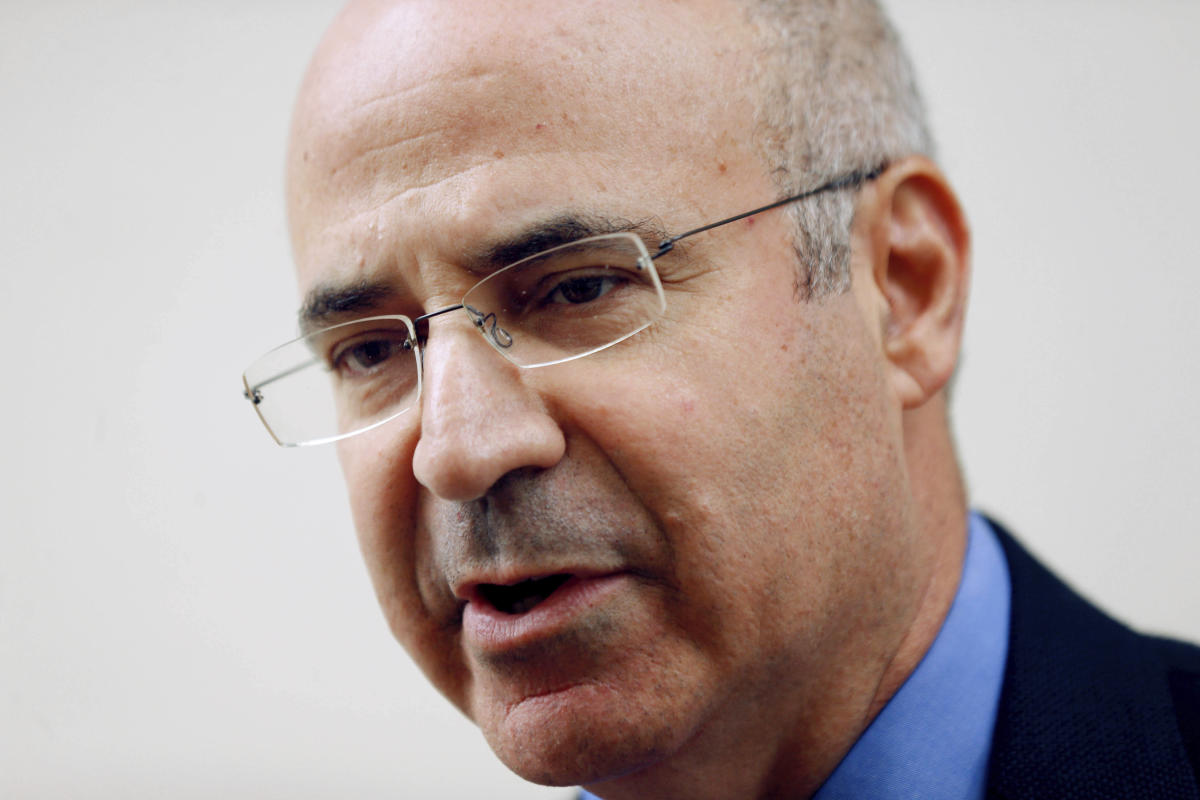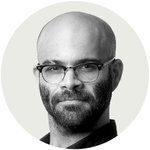
OTTAWA, Ont. — Bill Browder, a U.S. investor and prominent anti-Putin critic, says the Russian president’s endgame in Ukraine is to ensure he stays in power at home.
And to do that, Vladimir Putin will stay at war, Browder says.
“It’s not going to end — it’s going to carry on and on and on,” Browder, who heads the Global Magnitsky Justice Campaign, tells POLITICO.
“Vladimir Putin is not going to back down and Ukrainians are not going to give up their country. This war will, unfortunately, be a long-lasting war in which many more atrocities will be committed, many more heartbreaks will happen and Russia will become even more isolated than they already are in the international community.”
The founder and CEO of Hermitage Capital Management has a deep knowledge of the president and the way Putin’s Russia operates.
Browder, who has worked to reveal corruption in Russia, also knows how it feels to be on Putin’s bad side. This week, he will release a book titled “Freezing Order,” in which he details how he helped expose “Putin’s campaign to steal and launder hundreds of billions of dollars” and what happened afterward.
Browder rose to prominence through his global efforts to persuade governments to adopt punitive legislation in the name of his friend, Sergei Magnitsky. The Moscow lawyer was tortured and killed in a Russian jail in 2009 after uncovering a massive tax-corruption scheme.
Ever since Russia’s full-scale invasion of Ukraine on Feb. 24, Browder has been kept busy sharing his deep knowledge of Russia.
Browder said governments have sought his advice on who they should sanction around Putin, how to find the money and where to find the loopholes.
“I’ve had detailed conversations with officials at a high level in the Canadian government about how to react to this, as I have with the U.S. government and with the British government,” Browder said in an interview.
“I don’t want to violate confidences, but what I can say is that I’ve been thinking about these issues for more than a decade. A lot of these governments have been thinking about them for only a month.”
Browder shared his thoughts on Putin, the response of Western democracies and Canadian Deputy Prime Minister Chrystia Freeland, who he knows well from their days in Moscow years ago.
This transcript has been edited for length and clarity.
What have you learned about Putin over the years and what’s your take on the West’s response over Russia’s assault on Ukraine?
For 20 years, the West basically turned a blind eye to Putin’s crimes. This is not the first time Putin has illegally seized, or tried to seize, a sovereign state. He did so in Georgia in 2008, he did so in Crimea in 2014, he did so in eastern Ukraine after that. It’s not the first time he’s killed innocent civilians. He did that in Syria, he’s done that in Ukraine, he’s done assassinations all over the world. And we have effectively — the West — has turned a blind eye and not create any consequences. In a certain way, we have emboldened him to do what he’s done just now, which is, of course, much worse than anything he’s done before.
Having said that, I think the West’s reaction now is appropriate and commensurate and powerful. The economic sanctions are something that I could have never envisaged the West doing. They’re not complete, but I think that they’re powerful, where they are, even at the moment.
How could the West’s response have a stronger effect on Putin?
If we look at the Russian banks that are still allowed to function, only 70 percent have been disconnected from SWIFT [The Society for Worldwide Interbank Financial Telecommunication] — and we need to disconnect 100 percent of them from SWIFT.
If we look at the oligarchs who have been sanctioned, there are 118 on the Forbes list and only 12 of them have been sanctioned. More than 100 of them should be sanctioned. And most importantly — and this is the elephant in the room — while we’re doing all these sanctions, the West — I’m speaking mostly about Europe — are still sending a billion dollars a day to Russia in the form of payments for Russian oil and gas. And that has to stop.
Why has the West’s response stopped short?
There are people who would be economically disadvantaged by 100 percent of the banks being sanctioned, by all the oligarchs being sanctioned, and so it requires even more political will. But I’m 100 percent sure they all will be sanctioned because Putin, by his own atrocious action, is creating this political will.
You’ve been following Putin closely for a long time. Why is he invading Ukraine?
The reason he’s doing this is not because of NATO … (or) Ukraine joining the European Union. He is doing this because he needs a war in order to stay popular and stay in power. He has been a dictator for 22 years, he’s stolen an enormous amount of money from the Russian people and, absent the war or some other highly visible way of riling his people into a fervor of patriotism, he would no longer be in power. And so this is his way of staying in power.
How much do you think about disinformation and misinformation when it comes to Russia’s war on Ukraine?
There’s two kinds of wars going on right now — there’s a military war and there’s an information war. And the Russians are very good at information warfare. It doesn’t require huge amounts of organized troops and military equipment. It just requires a relatively low investment. … I’ve been a very big victim of their information warfare and it’s highly pernicious and it can create all sorts of bad outcomes.
How can the West combat Putin’s information war?
The West has done a beautiful job in this particular war. The U.S., Canada, the U.K. repeated every day for two months before the invasion that Russia was going to invade. So, by the time the Russians were starting to spread their misinformation to justify their invasion, a lot of the Russian apologist countries basically didn’t use those arguments because they were so not credible because of this, what I would call a very good information strategy by the allies this time around.
What else can be done to put pressure on countries that are leaning toward supporting Russia, or even those that have been staying neutral?
There’s a lot more to be done. There’s certain countries — like the United Arab Emirates, Saudi Arabia, Mexico, Brazil — who are not immensely powerful, where we have a lot of leverage. And we should use it to get them to not support Russia and to join the civilized world. It makes no sense why South Africa, for example, is doing this. And if they want to do this, there should be a price to pay.
And how about China?
We have no influence over China. They’re a superpower by themselves. But, for example, the consumers of the world have an influence. We could all stop buying Chinese goods if they carry on supporting the war in Ukraine.
How do the oligarchs fit into the picture?
The oligarchs aren’t powerful in their own right. Basically, they used to be before Putin. But their role now is to basically provide financial assistance to Putin — to look after his money for him, and to take financial actions as directed by him. And so they’re effectively the financial arm of Vladimir Putin. They are his financial alter ego and so when we talk about sanctioning Putin, we have to be also talking about sanctioning the oligarchs.
Freeland has been credited with leading the international drive to sanction Russia’s central bank. She’s also a former journalist you know from your time in Moscow. What do you remember of her from your days in Russia?
When I was a fund manager in Moscow, I encountered all sorts of corruption by the oligarchs who own majority stakes of the companies I had invested in. She was the [Financial Times] bureau chief and I was trying to get different journalists to write about these scams. Most of the journalists were too scared. But she was the only one brave enough to go out and expose one of the biggest oligarchs in Russia at the time, Vladimir Potanin, in a major conflict I was involved in.
And her exposing him led to his attempts to steal huge amounts of money to go unsuccessful. It also led to my work as an anti-corruption activist when I saw I could work with the media to do this type of thing. It both empowered me and it also empowered other journalists to then step in and do the same thing. She was a real leader, even back when she was just a journalist.




